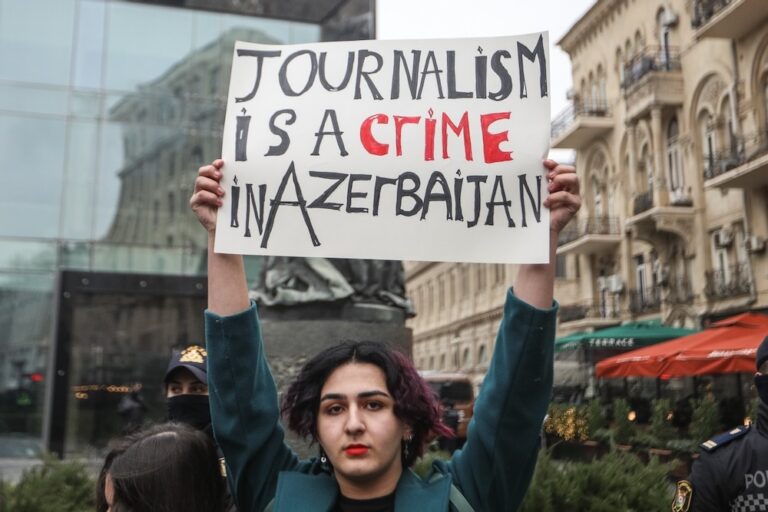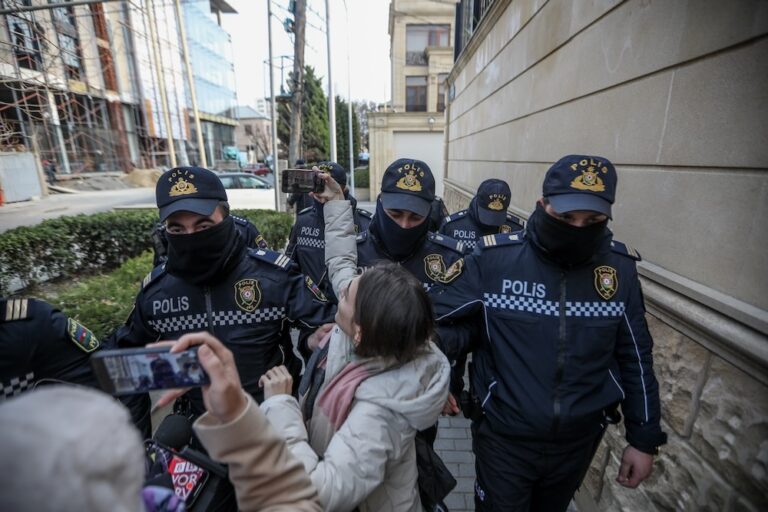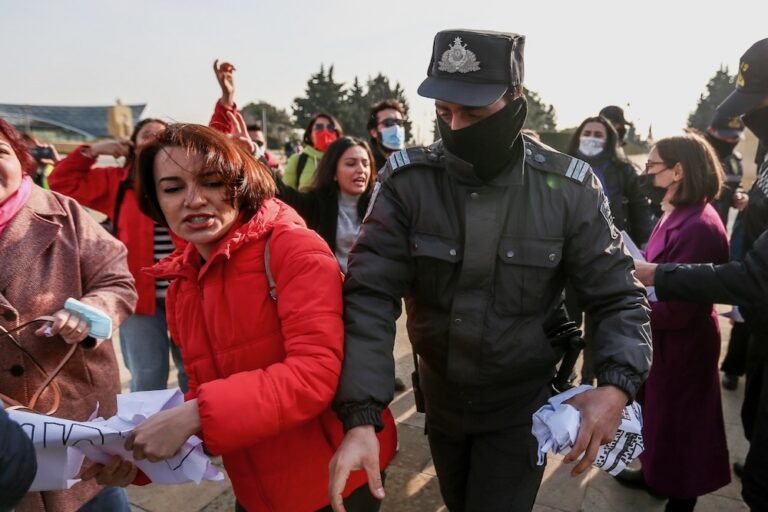As the Institute for Reporters' Freedom and Safety marks International Human Rights Day, it expresses concern that freedom of expression remains under attack in Azerbaijan.
As the Institute for Reporters’ Freedom and Safety (IRFS) marks International Human Rights Day [10 December 2013] – the 65th anniversary of the Universal Declaration of Human Rights – we are deeply concerned that freedom of expression remains under attack in Azerbaijan.
“Today there is no official censorship − people can express themselves freely − but they have to be ready to pay the price. Free expression may lead to arrests, trials, jail, blackmail, death threats and death,” said IRFS CEO and Chair Emin Huseynov.
When Rashad Ramazanov, blogger, expressed views online that were deemed offensive to the regime, it cost him his freedom. He was jailed last month for nine years for “drug possession”.
Around Azerbaijan’s civil society a cry of dismay has been heard following the trial of former MP Gular Akhmadova, with anger at a legal system that’s seen to be giving lenient sentences to serious offenders and unfair convictions to dissenters in unfair trials. Avaz Zeynalli, opposition editor, is serving his nine year jail term for the “bribery and extortion”, following an unfair trial initiated by Akhmadova. A father of two, Zeynalli has been held behind bars since October 2011, when he was arrested shortly after publishing an article that was very critical of President Ilham Aliyev. Despite serious health problems, all of his requests for release on bail were rejected and, while in jail, he has been subjected to harassment and denial of rights.
Journalist Khadija Ismayilova investigated corruption in high echelons of the government, and became the victim of a harassment campaign that exposed her private life. As a woman in a conservative community, the disgusting attack she faced posed danger to her safety. Although the Azerbaijani Presidential Administration publicly condemned the invasion of her privacy, an official investigation has not led to any results. Instead, another illegally obtained video of an intimate nature featuring Ismayilova was posted on the internet in July followed up with a smear campaign against Ismayilova and her family members in state-controlled media.
On 14 August, the Astara Regional Court found Mikayil Talibov guilty of slander under article 147.1 of the Criminal Code of Azerbaijan, sentencing him to one year of “corrective labor” essentially public service — and a 20 percent loss of earnings in connection with his comments on a Facebook page. Although later on Shirvan Appellate Court granted Talibov’s appeal revoking the first-instance court verdict, this case has had an incredibly chilling effect on freedom of expression online. Mikayil Talibov was the first victim of the draconian legislative amendments providing for criminal liability for defamation on the internet.
In March 2005, Monitor magazine editor-in-chief Elmar Huseynov was murdered in a well-organized attack that appeared to be a contract-style killing. After receiving a number of death threats, he was gunned down in the stairwell of his apartment building in Baku, where he died on the scene. More than eight years later, the authorities have failed to adequately investigate this case and no one has been brought to justice for the attack.
Since Huseynov’s murder, there have been more than 300 attacks against journalists in Azerbaijan, including another murder.
As Azerbaijan marks International Human Rights Day, there are nine journalists, one human rights defender and four online activists in detention or prison for politically motivated charges in connection with freedom of expression.
In its very first session in 1946, before any human rights declarations or treaties had been adopted, the UN General Assembly adopted resolution 59(I) stating “Freedom of information is a fundamental human right and … the touchstone of all the freedoms to which the United Nations is consecrated.”
65 years ago, on 10 December 1948, The Universal Declaration of Human Rights (UDHR) was adopted by the UN General Assembly. The UDHR represents the normative basis that led to formulating the standards for freedom expression. Article 19 states that “Everyone has the right to the freedom of opinion and expression; this right includes freedom to hold opinions without interference and to seek, receive and impart information and ideas through any media and regardless of frontiers”.
The International Covenant on Civil and Political Rights, also known by its abbreviation ICCPR, entered into force in 1976. It elaborates the principles laid out in UDHR and is legally binding on all states who have signed and ratified its provisions. Azerbaijan is a party to the UN and must comply with its commitments.
On the occasion of the International Human Rights Day, IRFS calls upon the Azerbaijani government to take immediate, concrete measures to establish an environment conducive to freedom of expression. IRFS calls on the government of Azerbaijan to comply with its international commitments to uphold freedom of expression, such as those outlined in the Universal Declaration of Human Rights, the International Covenant on Civil and Political Rights, and the European Convention on Human Rights.


